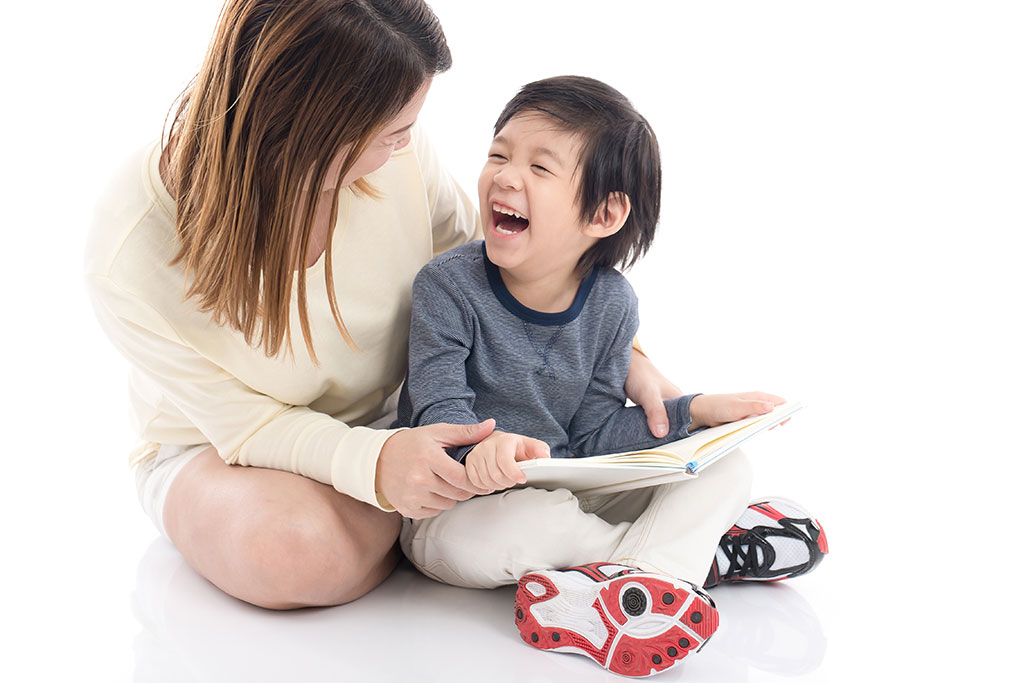Happy Parents, Happy Child.
Many parents dread the thought of leaving their baby for the first time at a pre-school, even if it for a few hours at a stretch. There is always that nagging, unsettling sense of apprehension deep down which never seems to go away. Pre-school, understandably is also an equally heart wrenching experience for new mothers and even second time mothers.
Actually, no first time mother is comfortable returning to work or getting back home leaving her child in the care of complete strangers. But the fact is they have to, there is no choice.
The first time is always difficult

A mature way of looking at this inevitable event is by preparing for it while the child is still at home. Start by asking yourself, have I prepared myself to be away from my child for half a day initially, and for longer durations later on? Follow this up with the next obvious one. Is my little one physically, emotionally, and socially ready for the pre-school?
To answer the first question, experienced parents feel that most pre-school childcare settings don’t truly appreciate the trauma families go through when they use childcare for the first time. Fortunately, there are some pre-schools who understand and respond with empathy. Assisting parents manage their emotions in a stress-free way.
As for the question of how ready a child is for pre-school depends more on developmental factors rather than on chronological age. For now however, the focus is on exploring how first time parents can learn to cope with the separation. More specifically, tips to help deal with the anxiety and stress they will be going through.
Managing separation anxiety

The scenarios you may encounter in the reception areas of pre-schools run something like this. Well-meaning nursery workers gently try separating a sobbing or screaming baby from an equally distressed mother. Reassurances like “Oh nothing to worry,” or “everything will be fine” don’t seem to help mothers or babies much.
On top of these, parents often get to see mothers walking out with tears streaming down their cheeks, desperately trying not to look back. This is not an okay thing to happen.
The sudden separation of any child from a ‘secure base’ is not something that can be ‘got over’ easily. The after effects linger. A better way of addressing these very real emotional upheavals is acknowledgement, rather than the urge to supress them.

Steer towards adopting a step by step approach to ensure a desirable outcome – a truly happy you and a happy child.
Don’t supress your concerns

Personal experiences stay top of mind for a very long time, and when it comes to her baby, it is not easy for a mother to reconcile or forget. To add to the problem, most parents find it uncomfortable to talk or even bring their concerns up for discussions with a pre-school teacher.
Which is why, taking the time to listen to your own feelings and thoughts, examining them carefully will be of great help. It will help both the parent and teacher prepare for, when things don’t seem to go as planned.
The most common concern for a mother is, “my baby is more relaxed when cuddled, I am not sure how she is going to settle down without being cuddled?”
Some others include, “My baby is only calmed when she’s carried in her sling. I use it all the time at home, but can’t imagine the nursery doing the same.”

“My baby hasn’t as yet settled into a routine, he naps whenever he feels like it. Will adjusting to a pre-school schedule be too troublesome for him?”
Here’s one that is bound to stump teachers who are not mothers themselves, “I still breastfeed my baby and she won’t take milk from a bottle, I’m really worried, is it going to be the end of breastfeeding for us.”
Then there is an even more worrisome concern, “I’m worried my baby is going to hate me for leaving him, will it hurt our bonding? What if he likes his teacher more than me?”

Some concerns may seem like the most irrational of things, but they are nonetheless concerns. A mother needs to start addressing them in the privacy of her home. She need to face and arrive at her own way of dealing with them.
What mothers can do about anxiety

Don’t ignore or minimize the importance of addressing yours as well as your child’s concerns and fears. If there is a feeling of guilt, or you are worried about leaving her at school, the child will sense that instantly. So stay calm, be self-assured, this will make your child too feel more Confident.
Meeting the teacher helps: Both you and your baby will benefit from getting to know the teacher beforehand. You could start the conversation by finding out how the teacher usually handles a child who is crying for a parent. When the time comes for pre-school comes, ensure the transfer of the baby from your care to the classroom is smooth. Seek help of the staff whenever it is required.
Help the teacher to help you: It will be of great help to the teacher to know as much as possible about your baby’s home life. Things become easier to handle if she knows the eating, sleeping, and toileting patterns. Knowing your child’s favourite colour, what games she likes to play, or what songs she likes to sing are very important pointers to managing toddlers.
Sharing techniques: What helps the baby stay stress-free will help you as well. So share the techniques you use to calm your child when she is feeling upset or anxious. The teacher might want to replicate them in her classroom. Let the teacher also know about any medical issues and the foods your baby is allergic to. This is important.
Learning real-life lessons: When first time mothers see their child having trouble facing not so happy first reaction to pre-school, an instinctive urge to withdraw their toddler from the classroom crops up in the mind. This is a bad idea. It denies your child an opportunity to learn how to handle her negative feelings. It also automatically sets a precedent of not having to face problems.

Go back only at pick up time Remember, when you leave your child for the first time at a pre-school, try and ignore the temptation to go back for a quick peek. When you’re always checking up, you are sending the wrong signals to your child. She will begin to expect you to be around. It is best to avoid planting such an idea in the child’s mind.
Motivate yourself Think of a slogan for yourself. One that will calm your feelings and prepares your child for her first day at a pre-school. “This is right thing for my baby,” or “the best place for Wei Wei to be in.” Repeat often. In fact, both you and your child will be happier being apart for a while.
Empathy & respect
Don’t dismiss your own feelings. Instead say, “this is really a big thing.” How can I help my child.” This will validates your feelings and show that you are genuinely concerned. Bear in mind, listening helps. Remember, teachers are trained to listen attentively to mothers. Ready to figure out the best way to deal with an overanxious parent. The teacher. will also trun to you for advice on other occasions and issues that may crop up. Empathy works both ways.
Preparing for drop-off

No matter how well-prepared, your baby may still not be up to being dropped off on her first day. While it can be difficult, you can definitely make it easier for both of you.
Put in place a goodbye routine Doing this at home will have a more positive and lasting effect. It will increase comfort levels and your child begins to understand what’s to come. A big hug, a firm handshake and a follow up, “see you later alligator” should suffice. Decide on this together with your child. Practice the ritual every time you are likely to be away from your child. Try not to hang around though, long farewells makes parting difficult.
Don’t disappear suddenly. Stay back a while, time it according to how your child vibes. Don’t just disappear, it will make a child real afraid when you vanish.
It takes weeks for a child to adjust to be somewhere without her mother. Handle separation process in a smart way. Go to the pre-school with your child and sit with her. Avoid interaction, but be there. It is reassuring and can work as a safety net.
Provide a comforting security Bring your child’s favourite doll, or a blanket, or any familiar book or even a sippy cup filled with something your child loves. While these might seem small irritants to you, these provide the real feeling of being safe and secure in a strange place.

Avoid comparing Don’t raise your voice, or resort to reprimands. Make the transition to pre-school as smooth as is possible. Your child may cry at every separation. But keep in mind, she is only trying to express her feelings. Let her, because eventually she will come to terms with separation and find a way to overcome it on her own.
You will always come back for her When you return to fetch your child after school, let her know that you came back for her. Remind her, and keep reinforcing this idea that you will never let her down. No child or mother likes to make dropping off difficult and a time for only tears.
Patience pays big dividends Nothing can happen in a hurry. Success in the transition to school takes longer than you expect. Be assured however, there is no child and no mother who cannot overcome separation anxiety.

Remember, practice small separations each day at home to ease your baby’s anxiety so she’ll be as prepared as you for bigger ones that come later. My Gym can share with you how you can make dropping off and goodbyes a pleasant experience. Please call us or email to schedule an appointment. It is always best to talk things over.



